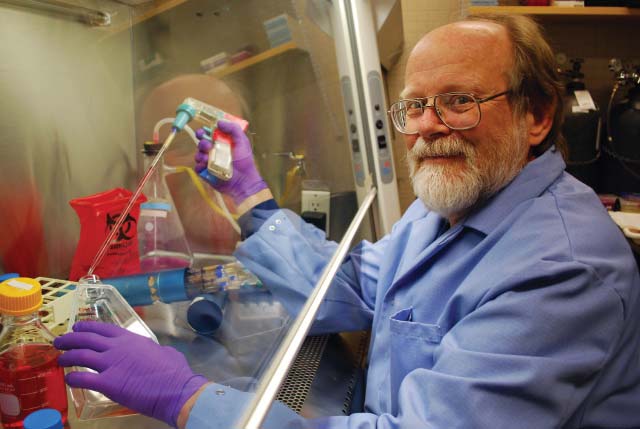Grants give students veterinary experience in developing nations
 “Working abroad can change your life,” says Dr. Ton Schat, an avian pathology professor whose veterinary adventures abroad helped forge a fruitful career. “That kind of eye-opening experience affects all the people and animals you help as a veterinarian and shapes the kind of person you become.”
“Working abroad can change your life,” says Dr. Ton Schat, an avian pathology professor whose veterinary adventures abroad helped forge a fruitful career. “That kind of eye-opening experience affects all the people and animals you help as a veterinarian and shapes the kind of person you become.”
He hails from Holland, battled bacteria in Nigeria, launched labs against Marek’s disease in Mexico, and recently returned from an Australian excursion studying one of the more dangerous strains of Avian Influenza. With Cornell as his home-base since 1975, he has continued collaborations with researchers around the world. Best known for his industry-changing work improving poultry health for which he recently received a lifetime achievement award, Schat attributes the inspiration and success of his career to his early experiences abroad.
“I knew early on that I wanted to pursue international development,” says Schat, who earned his DVM degree from the State University of Utrecht in the Netherlands. “During my final and practical year of my studies in Utrecht I went to Northern Nigeria on a fellowship to study causes of infertility in Fulani cattle. I really enjoyed my months there, from the hands-on work to interacting with the Nigerian students.”
Schat returned from Nigeria determined to pursue international work before going to graduate school. “I landed a job through the Dutch government to work on Marek’s disease in Mexico. I arrived in 1971 and worked there for four years, setting up a lab, training Mexican researchers, and working towards a vaccine.”
In Mexico, Schat met Dr. Bruce Calnek, an avian pathology professor from Cornell who shared Schat’s growing interest in Marek’s disease. Calnek invited Schat to work in his lab as a graduate student, and Schat has worked at Cornell ever since. While pursuing his PhD, Schat isolated the SB-1 strain of Marek’s disease in chickens and used it to develop a vital vaccine still used on the market today. The vaccine generated significant royalties for the College, and continues to generate income.
Most of that money went back to the former Department of Avian and Aquatic Animal Medicine, pooling with other departmental money to support grad students and research expenses. When the department later merged into the Department of Microbiology and Immunology and the flock of avian medicine students pursuing PhDs thinned, the money lay dormant for many years.
“Dr. Calnek was in charge of the former department’s funds. When he retired in 1996 I was charged with overseeing their use,” Schat explains. The Expanding Horizons program seemed like the perfect choice for Schat, who shares its core philosophy: that working in developing nations empowers students to improve themselves and their world.
Expanding Horizons provides Cornell veterinary students with grants to spend 6-10 weeks in a developing nation engaged in a hands-on veterinary experience or research project. Projects span the veterinary spectrum, from rehabilitating wildlife or teaching farmers vaccination techniques, to researching rhino parasites or promoting habitat conservation. Students have traveled to all corners of the world, including Kenya, Madagascar, Honduras, Bolivia, Italy, Vietnam, Thailand, Taiwan, and many more.
“More students are growing a keen interest in reaching out to the world around them,” says Schat, who teaches a biannual course in international veterinary medicine that has grown to an average class size of 60 students. “For most students who have gotten the chance to go abroad, it has opened their eyes and broadened their perspectives. My own time abroad was crucial to my personal development. I feel it is extremely important for our students to be able to have the same kind of experience that was for me so life-changing.”
“Since the program began in 1985, we have been able to support five to ten students a year,” says Jai Sweet, Director of student Services and multicultural Affairs who oversees the program. “This new fund sets the foundation for a steady, stable stream of support that will ensure more students can continue to pursue these extraordinary international opportunities.”
Should you have an interest in contributing to this fund, please contact Amy Robinson in the Alumni Affairs and Development Office at amy.robinson@cornell.edu or 607.253.3742.